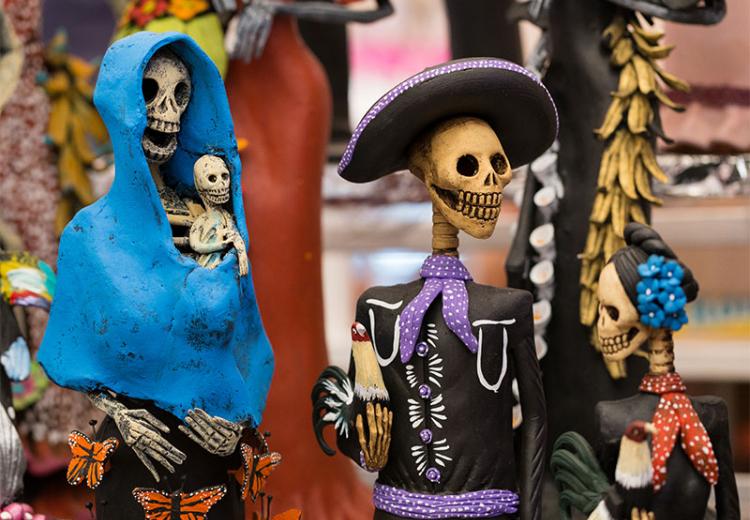Mexican Culture and History through Its National Holidays

Day of the Dead figures in Mexico.
© Tomas Castelazo, www.tomascastelazo.com / Wikimedia Commons / CC BY-SA 4.0
Much can be learned about a nation by the events that appear on its calendar. National holidays provide insight into the values of a country while commemorating its history. Mexico today is the product of ancient Indian civilizations, European conquest, Catholic missionary efforts, two long and bloody revolutions, and many other wars. The encounter between European and indigenous, Catholic and pagan, and rich and poor has generated a unique culture in Mexico.
This lesson will focus on holidays that represent and commemorate Mexico's religious traditions, culture, and politics over the past five hundred years. The holidays celebrated by Mexico today exemplify the synthesis of ancient Mexican religion and Catholicism, and commemorate the struggles of Mexico's different social classes and ethnic groups. The Feast of Our Lady of Guadalupe (Dia de Nuestra Señora de Guadalupe) is a Catholic celebration of the appearance of the Virgin Mary to an Indian man in the first years of Spanish rule. The Day of the Dead (El Dia de los Muertos) is a celebration that has developed out of a combination of indigenous and Catholic rituals for honoring the deceased. Mexico's Independence Day commemorates The Cry of Dolores (El Grito de Dolores), when Mexico's rural poor began a fight to overthrow the Spanish in 1810. Finally, Cinco de Mayo, a celebration that continually grows in popularity in the United States, commemorates a Mexican military victory over the French in 1862.
Guiding Questions
What do some of Mexico's major holidays tell us about the country's religious and political history?
Learning Objectives
Identify the ethnic and religious influences on Mexican culture.
Understand the meaning and history of Dia de los Muertos, Dia de Nuestra Señora de Guadalupe, Grito de Dolores, and Cinco de Mayo.
Identify basic practices and traditions of Mexican religious and political holidays.
